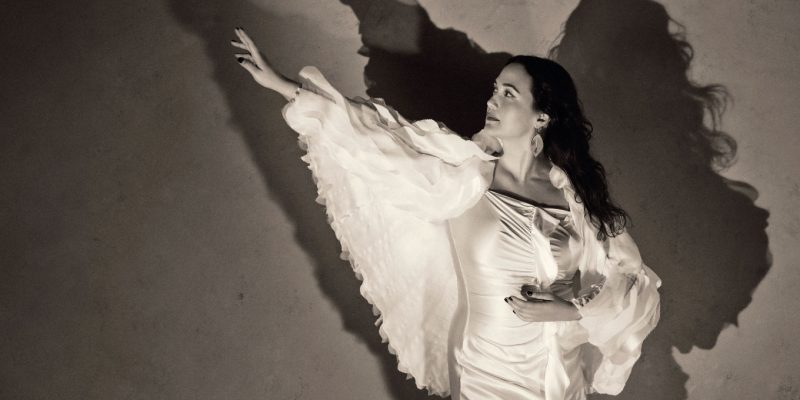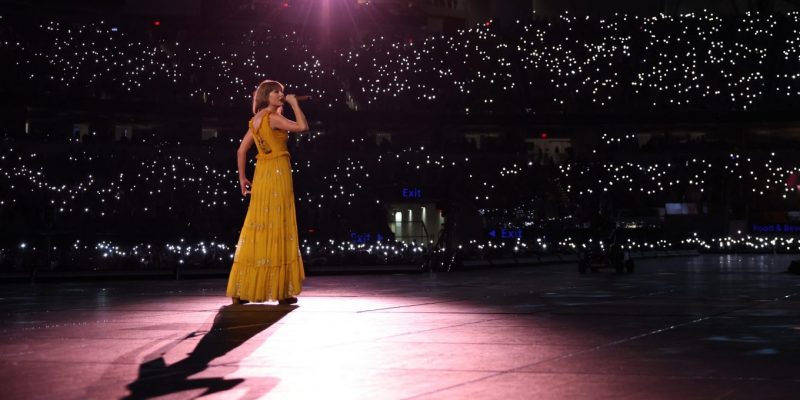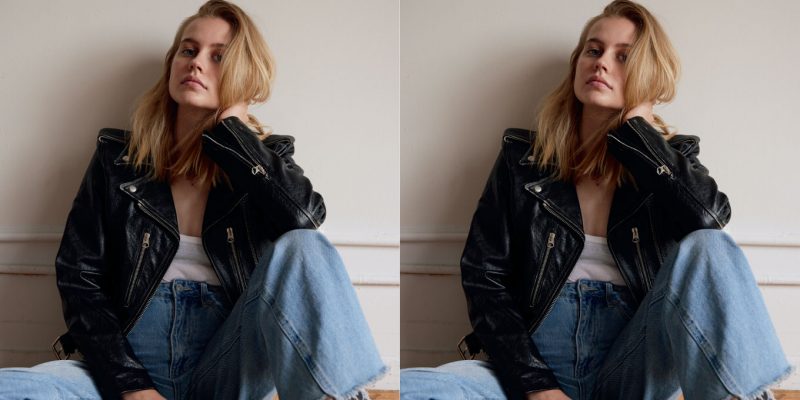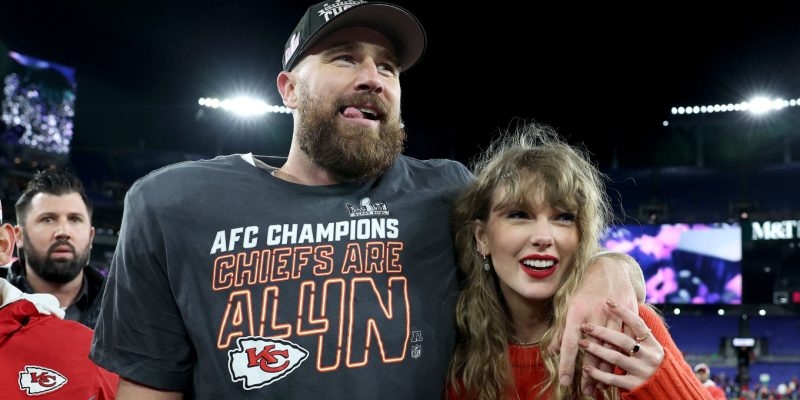Celebrity
Cara Delevingne Is Our November 2019 Cover Star!
Voracious. Free-Spirited. Charismatic. This is Cara Delevingne.
by : Elle Canada- Oct 4th, 2019
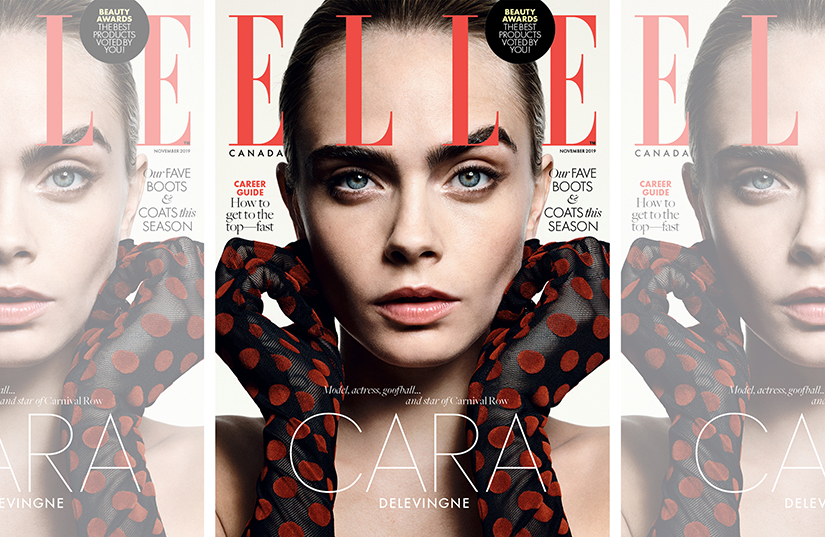
It’s 9 p.m. on a Thursday night, and Cara Delevingne doesn’t want to go out. We’ve booked a fancy dinner in the lobby restaurant of her hotel in Paris, but when I arrive to pick her up, she texts me to come to her room instead. There, I find her in pyjamas (well, a ratty T-shirt and black leggings), snuggled under her covers. Quite a contrast to when I saw her half an hour ago, wearing a pink Chanel dress at the Grand Palais, where she was saying her final farewell to one of the most integral figures in her life: Karl Lagerfeld. At the service, she read from the French writer Colette’s poems about cats—a tribute to Lagerfeld’s beloved companion, Choupette. Cara held it together through to the bow, when she was joined by Pharrell Williams, Tilda Swinton and Helen Mirren, but the emotional toil of saying goodbye to one of her earliest champions has finally hit her. “What made me really sad was, at the finale, I was looking for Karl to go ‘What a great show!’ That’s when I realized ‘Oh, no, he’s not here.’”
The 27-year-old model, face of Dior Beauty and actress has made a career out of being the goofy, smiling girl next door, but I’ve known Cara long enough (since she was a naughty teenager) to recognize that beneath her extroverted, always on exterior is a girl who can be brought to her knees by emotion. I take one look at her darkly smudged eyes peering out from under the duvet, and I know I’ll be calling the concierge to cancel dinner. I pull the curtains and crawl into bed next to her and we begin our pillow-talk interview.
I first met you when you were 16 or so, and you were much more into pizza than fashion. The idea of you having a life in fashion probably came as a surprise to your family, no?
“I’m still not a fashionista. I think anyone, in com- parison to me, is more ‘fashion’ than I am. I guess my household was more fashion-y than most. My dad [Charles, a property developer] is a fashionable person, although he likes to be naked, and my mother [Pandora] is a fashionable person—she’s kind of a hoarder. My grandmother always had a lot of clothes too.”
Is that the granny who was a lady-in-waiting to Princess Margaret and is quite a character?
“Yes, my mum’s mother. Come to think of it, I’ve always been the least fashion-y person in my family.” Dame Joan Collins is your godmother. Did you know that she was such a cultural, fabulous figure when you were a kid? “She met my mother and father separately. They were all great friends back in the day. I didn’t even know what ‘fabulous’ was then! I guess going to the South of France [on family holidays] seemed very glamorous because, obviously, it is. And Joan was very much a part of that.”
What kind of student were you?
“I wanted to go to drama school, but I ended up attending art school. I was severely depressed, and I knew I wasn’t going to do well at school. I struggled immensely [at that point] with balancing my depression.”
So, you thought the fashion world would be a good place to go if you were depressed?
“The thing I had on my side was that I didn’t know much about fashion, so it didn’t seem intimidating. I thought it would be like Zoolander or The Devil Wears Prada. Of course, no one can outrun depression, and those feelings came back eventually. But at first, fashion seemed like a slightly ridiculous other world.”
You made friends early on. Your crew was Georgia [May Jagger], Kendall [Jenner] and Jourdan [Dunn]. I think the trick to surviving in this business is finding real friends, not just “fashion” friends.
“I remember Georgia, who was already being shot by the paparazzi, would say to me, ‘Cara, you can’t just walk out of a nightclub with your high heels in your hands. You need to look presentable; people are going to take photos!’ And I thought, ‘No. No one will want to take my photo—don’t be ridiculous.’ Within a year, I was being papped everywhere, still with my shoes in my hands. Georgia would say, ‘Cara, what did I tell you?’”
Was it easy to make friends?
“Honestly, I had low expectations for friends in this industry because a) I didn’t think people would want to be my friend and b) I didn’t know if the friendships would be fickle or seem not real. So I was pleasantly surprised! Jourdan and Karlie [Kloss] were friends early on. I didn’t meet Kendall until I had been modelling for a bit. We had done a few shows together and didn’t say a word to each other. Eventually, we started talking, and I was like, ‘Oh, you’re all right. We should hang out after this.’ She was like, ‘All right, cool.’ It was very easy. I found that you automatically know if someone is trying to make an effort that isn’t real or when a friendship seems contrived.”
You learned to trust your instincts.
“Sort of. My instincts are sometimes spot-on but sometimes terribly wrong. Some people are out to fool your instincts.”
You were on the cusp of becoming a social- media-model phenomenon when fashion and casting directors succumbed to the power of the internet. Have you ever posted something you regretted?
“No.”
Really?
“I have not. Honestly. It’s like when someone asks me ‘Do you have any regrets?’ I do, but I don’t. What’s the point? I’m here now and that’s what got me here.”
Have you changed the way you use social media now?
“Definitely. Now, people tell me that I should use it more, but I can’t. I find it hard. Sometimes I’ll hear ‘Oh, I used to love your Instagram. It was funny!’ When I started to feel pressure to do it, it felt like work.”
Tell me about your most memorable fashion moments.
“One of the best and worst moments was shooting my first Burberry campaign with Kate [Moss]. It was terrifying! How do you get your photo taken next to her? It’s like shooting with a panther. She’s the queen of the set, but also she might eat me. I was in awe but trying to get the shot. Every time I was on-set, I’d be staring at her instead of looking at the camera.”
Are there any lessons that you’ve learned in fashion that you’ve applied to acting?
“Honestly, fashion really fucked me when it came to acting. When I did my first film—Anna Karenina, which I didn’t have a speaking part in—every time I was on-screen, the director [ Joe Wright] would come up to me and say, ‘Cara, you’re modelling again. Stop trying to look pretty.’ I was an extra with 60 other people on-screen at the time. I was like, ‘But what do you mean?’ And he’d tell me, ‘You’re not in the moment—you’re just trying to look hot.’ I never thought that I did that. Modelling makes you know where the camera is at all times, and you have to forget that when you’re acting.”
Agree or disagree: Acting and fashion have a reputation for being cut-throat and hard on one’s self-esteem.
“Agree. Modelling is more surface, and acting is a bit deeper—either way, you’re getting rejected at some point. Which is something I’ve spent a lot of time working on.”
How do you find peace of mind while navigating the industries?
“Every morning and night: yoga and meditation, even for five minutes.”
C’mon. Do you honestly do that?
“Yes! I sleep with my phone in airplane mode, and before I turn it on, I lie there and breathe for five minutes.”
I always say I should put my phone in airplane mode, but I never do it.
“Honestly, I feel different in the radio-wave space if I don’t. I know if I wake up in the night with messages coming in on my phone, it’ll mess me up. When I turn it off, I can literally sleep through the night.”
Do you see a therapist?
“I haven’t in a while, but I should. I love to write music and poetry. All of that [creativity] comes from my trauma in some way—all the heartbreak and experiences that happened to me as a kid. It doesn’t matter what relationship you have with your parents, you have to try to find something positive in it. My mother gave me the gift of being able to be confused and tortured. I feel grateful when people ask me about my mother being ill. I had to find my own way of expressing that emotion and feeling, so I discovered music and writing. It’s painful, but it’s a way of connecting.”
Did you have a fear of changing gears to focus less on modelling and more on acting and music?
“I was talking to Helen Mirren about this today. I asked her, ‘When have you ever done something that’s easy?’ She was like, ‘Never.’ Not that mod- elling was easy at all—it really wasn’t. I didn’t ever think that I would be successful at it in any way, shape or form. But a few years in, I realized it wasn’t good for me, physically or emotionally, and I’d have to try new, different things.”
You’ve told me before you didn’t think modelling was always a safe space.
“At a certain point, I wasn’t strong enough to say no to things. Modelling fuelled this thing where pictures of me looking pretty were the only things I liked about myself. Take that away, and take the billboards away, and there was nothing left. It’s not that I thought I was pretty—the person on the billboard was pretty. It became a fucked-up way to look at the world. I knew it wasn’t going to contrib- ute to a healthy lifestyle and human interaction.”
Which actors do you admire?
“Everyone I worked with today—Tilda Swinton, Helen Mirren. Who else? Jennifer Lawrence, Phoebe Waller-Bridge.”
Every person you’ve just mentioned is a woman. Is it good to work in Hollywood at a time when it feels like women are gaining more power and control?
“Yes. Except sometimes it feels the same. In my opinion, especially in these movements, as soon as we get a hashtag for something, we feel like it’s done. But that’s not the case. It’s the beginning, and I think people need to remember that [gender discrimination is] still happening all the time. Women are getting more opportunities, but there are still people out there who are the same as they were three years ago. You can’t just put a hashtag on social media and the problem is gone.”
You publicly shared your Harvey Weinstein story, where he asked for a threesome with you and another woman. Was it therapeutic to get that off your chest?
“I hadn’t thought about it for five years, not until Rose McGowan came out with her story. So, weirdly, it was therapeutic, but I also hadn’t dealt with it at all. I didn’t really know what assault was. I hope [Harvey] gets prosecuted, and, of course, I want there to be justice. It turns out nearly every single woman I know or have worked with has been harassed or assaulted in some way. I just didn’t know about it.”
Your new series, Carnival Row, is a reference to modern crises. What do I need to know about the show?
“It’s a neo-Victorianesque fantasy world, and I play a bisexual fairy. It’s a discussion about immigration and the refugee crisis set in a fantasy world. It’s a lot of different storylines and a lot of different characters and creatures. It’s made for geeks and fanatics and people who like to go into the depths of another world. To be honest, if I didn’t have the script to read, I’m not sure I would have understood it all from the start.”
What does Cara Delevingne do to unwind?
“I like being spontaneous. Every other moment in my life is planned.”
What was the last spontaneous thing you did?
“I drove to Big Sur. Spontaneously. I also like to do movie nights.”
Wow, going to the movies. Living on the edge, Cara! Really living up to your public profile! I knew you as a wild teenager. Are you still wild?
“Ha! You just wait until I get a break! Then I’m going to go crazy. I didn’t go to Glastonbury this year. I’m not going to Burning Man, which is sad. When I was younger, I could be wild and work. Now, I can’t do both.”
You’re also in a steady relationship now, which you revealed when you were given the Hero Award by the Trevor Project [a national non-profit organization dedicated to providing crisis-intervention and suicide- prevention services to young people in the LGBTQ community based in New York—Cara was joined at the event by her partner, actor Ashley Benson]. In your speech, you said you’re in love. What does love feel like for Cara?
“I’m just better when I’m in love. That doesn’t have to mean with someone—it can also mean with myself. It just feels incredible when you’re not alone, when you’re facing the world with someone else.”
Why have you been hesitant to talk about your love life in the press?
“Because it’s sacred. I get why people care so much, and I don’t want to be so secretive that people think I’m ashamed of anything. But I’ve never been in a relationship where things are so public or where I posted pictures. This seemed different. We had gotten to the point where we had kept it a secret, or at least not wanted attention, and now I feel like I’m not going to not be proud. Which isn’t the same thing as wanting to pose on a red carpet together either. People make their own assumptions, and that’s what worried me. Because if it is something that is so good, you don’t ever want anyone to change it, even though people shouldn’t have that power.”
You’ve said that your life motto is “Embrace your weirdness.” How have you embraced your weirdness?
“When I say ‘Embrace your weirdness,’ it means embrace the things you don’t like about yourself. For a time, for me, that was almost everything. But I’ve learned to embrace all the things about myself—if they’re good and even if they’re bad. After all, I fall in love with someone because of their flaws. And I’ve learned to love myself because of my flaws too.”
Writer DEREK BLASBERG; photographer LIZ COLLINS; stylist SASA THOMANN. The November issue of ELLE Canada is on newsstands October 7th. Subscribe to ELLE Canada here.
Newsletter
Join our mailing list for the latest and biggest in fashion trends, beauty, culture and celebrity.
More from Celebrity
Read Next
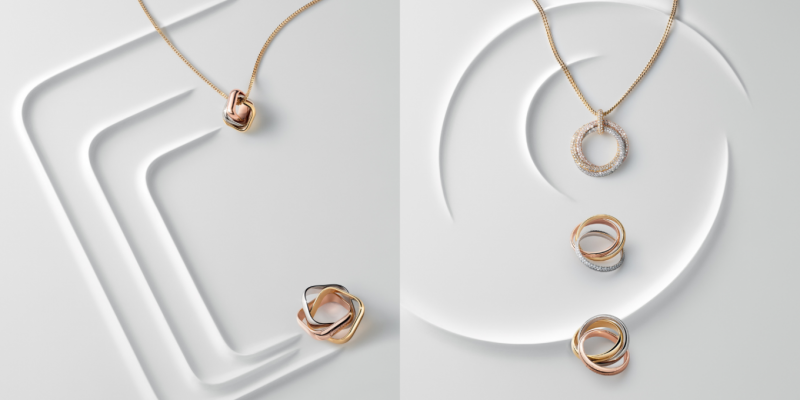
Fashion
Cartier Celebrates 100 Years of the Trinity Ring
What better way to celebrate an anniversary than with a new collection?
by : Allie Turner- Apr 19th, 2024
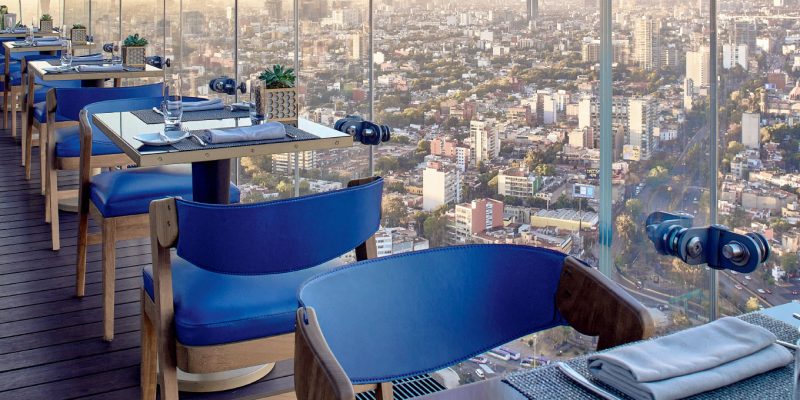
Culture
How to Spend 48 Hours in Mexico City
Where to discover the hidden gems—markets, mezcal, modern art—of the Central American capital.
by : Jennifer Nguyen- Apr 18th, 2024

Culture
This University Elevates Women to New Professional Heights
You shouldn’t have to pause your life to move forward in your career.
by : ELLE Canada- Apr 16th, 2024

